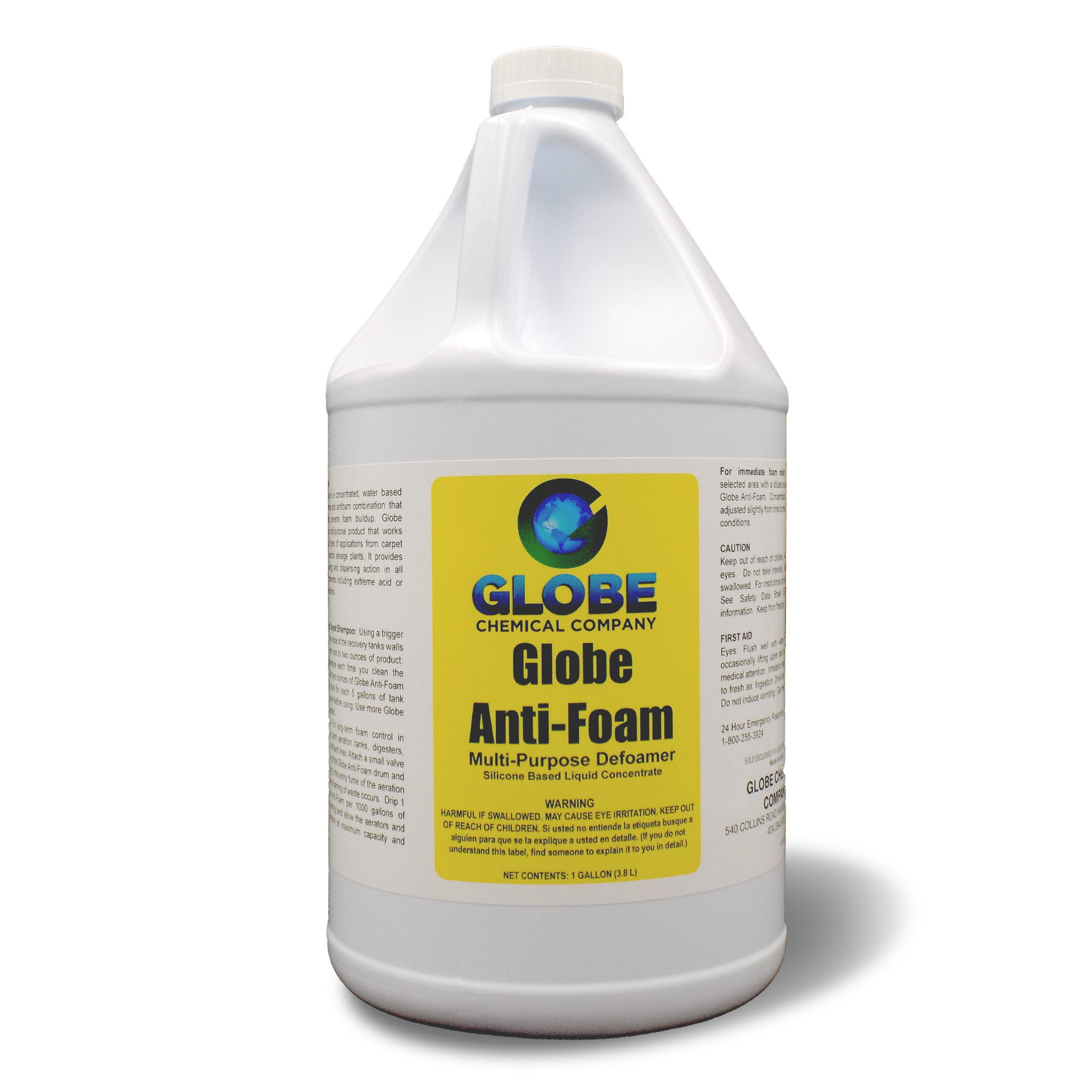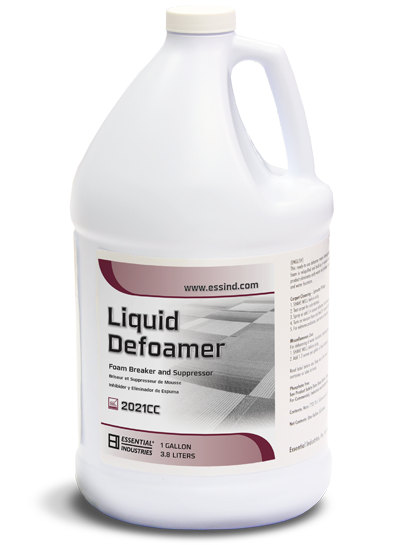The Most Reliable Ways to Utilize Chemical Defoamer for Maximum Results
The Most Reliable Ways to Utilize Chemical Defoamer for Maximum Results
Blog Article
How a Chemical Defoamer Can Boost Efficiency in Your Procedures and Processes
In today's affordable industrial landscape, functional efficiency is critical, and the duty of a chemical defoamer can not be neglected. By dealing with foam-related challenges that disrupt procedures, defoamers not just facilitate smoother operations yet additionally contribute to cost financial savings and boosted product high quality. Their influence extends various industries, making them a critical consideration for those seeking to optimize efficiency. Recognizing the details benefits and applications of defoamers elevates important inquiries regarding their selection and application. What aspects should you consider to optimize their efficiency in your operations?
Recognizing Chemical Defoamers
Chemical defoamers play an essential function in various industrial procedures by properly minimizing and stopping foam development. Lathering can result in functional inadequacies, boosted production prices, and jeopardized product top quality. Defoamers are specialized chemical additives developed to interfere with the stability of foam bubbles, consequently enabling smoother processing and boosted performance across numerous industries, consisting of food and drink, pharmaceuticals, and wastewater therapy.

These representatives generally include surfactants, oils, or polymeric substances that reduced the surface tension of the fluid, promoting the collapse of foam. The mechanism whereby defoamers run typically includes the destabilization of foam frameworks, permitting quicker drain of fluid and the launch of caught air. Various formulas are tailored to specific applications, taking right into account elements such as compatibility with the system, temperature, and the nature of the liquid being dealt with.
Comprehending the structure and performance of chemical defoamers is crucial for picking the suitable product for an offered application. By optimizing defoamer option based upon procedure needs, markets can improve functional performance, reduce foam-related challenges, and ultimately improve total productivity.
Benefits of Utilizing Defoamers
Making use of defoamers can considerably enhance operational effectiveness across numerous industries by efficiently reducing foam-related concerns. The presence of foam can interfere with processes, resulting in increased downtime, reduced performance, and prospective high quality deterioration in final result. Defoamers aid deal with these obstacles by damaging down foam structures, thereby enabling smoother procedures.
Among the primary benefits of using defoamers is the reduction of waste and remodel. By lessening foam development, defoamers improve the consistency of processes, ensuring that products are used successfully. This not just decreases functional costs yet likewise adds to sustainability campaigns by decreasing resource intake.
Furthermore, defoamers can enhance item high quality. In making setups, excessive foam can cause incongruities in item features, influencing customer complete satisfaction. By regulating foam degrees, defoamers assist preserve the preferred physical homes of products.

Applications in Different Industries
The effectiveness of defoamers extends throughout a large array of sectors, where their application addresses Source certain foam-related challenges fundamental to each sector. In the food and beverage industry, defoamers are essential for maximizing manufacturing procedures, such as developing and dairy products handling, where excessive foam can impede flow rates and reduce performance. By reducing foam, these representatives enhance item quality and consistency.
In the chemical production industry, defoamers are used in processes like paint manufacturing and wastewater treatment. Here, they click over here protect against foam development that can interfere with mixing and separate phases, thereby improving the overall efficiency and efficiency of operations.
In drugs, defoamers play an important role in the formula of liquid medications, ensuring appropriate dosage and security by controlling foam throughout mixing and storage space. (Chemical Defoamer)
Additionally, in the farming market, defoamers are utilized in chemical solutions to boost application effectiveness and decrease waste.
Choosing the Right Defoamer
Picking the proper defoamer is essential for attaining ideal efficiency in various applications. The choice process must start with an extensive understanding of the specific problems handy, including the kind of foam existing, the processing problems, and the chemical compatibility with various other formulation elements.
Defoamers are created from a variety of materials, consisting of silicone, mineral oils, and fatty acids. Identifying the best composition is vital, as various materials display differing performance in diverse atmospheres. For circumstances, silicone-based defoamers are often favored in high-temperature applications because of their security, while natural defoamers may be preferable for water-based systems.
Additionally, think about the defoamer's influence on the end product. Some formulations can alter the aesthetic or practical properties, making it crucial to select a defoamer that meets product specifications without compromising quality.
Examining is an additional essential action in selecting a defoamer. Small trials can provide valuable understandings right into the defoamer's efficiency, permitting modifications prior to full-scale implementation. By very carefully evaluating these variables, companies can improve performance and guarantee that the defoamer efficiently fulfills their functional demands.
Best Practices for Implementation
Applying a defoamer properly needs cautious planning and adherence to ideal methods to maximize its efficiency. Carry out a comprehensive analysis of the certain application and foam qualities. Understanding the kind and source of foam will certainly direct the selection of one of the most suitable defoamer solution.
Next, develop the ideal dosage (Chemical Defoamer). Start with a small-scale test to identify the minimal efficient focus, as extreme usage can result in adverse impacts on item quality or functional effectiveness
Monitoring and changing the application method is vital; ensure that the defoamer is presented at the right factor at the same time for maximum effect, such as throughout mixing or promptly after foam formation.

Additionally, keep clear interaction with all appropriate employees to ensure regular application techniques and to share understandings on performance outcomes.
Verdict
To conclude, the use of chemical defoamers plays an essential role in boosting functional performance across varied industries. By successfully destabilizing foam, these agents help with quicker water drainage and air release, thus decreasing interruptions and decreasing prices. The calculated application of defoamers not only boosts throughput however additionally makes sure consistent item high quality and source optimization. Eventually, the incorporation of defoamers right into industrial processes promotes dependability and contributes to general performance improvement.

In the food and drink market, defoamers are essential for optimizing manufacturing processes, such as brewing and milk handling, where excessive foam can prevent circulation rates and reduce performance. Silicone-based defoamers are typically favored in high-temperature applications due to their security, while organic defoamers may be extra appropriate for water-based systems.
Report this page